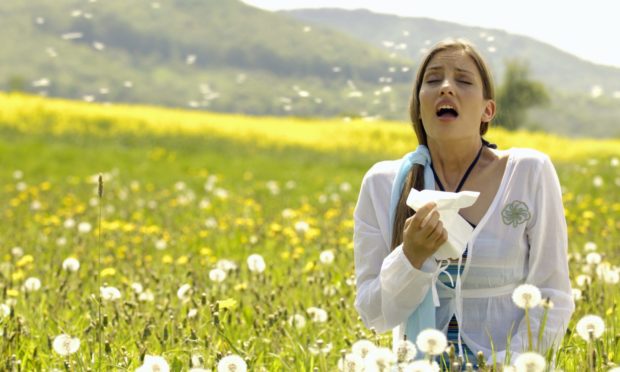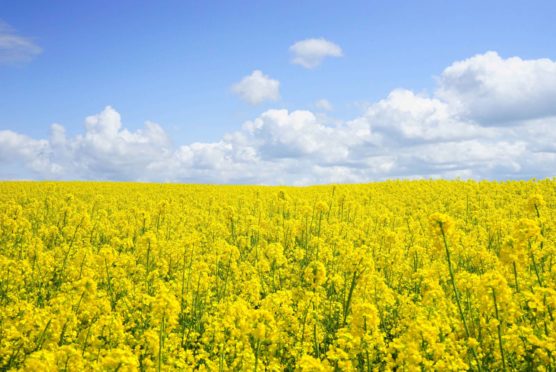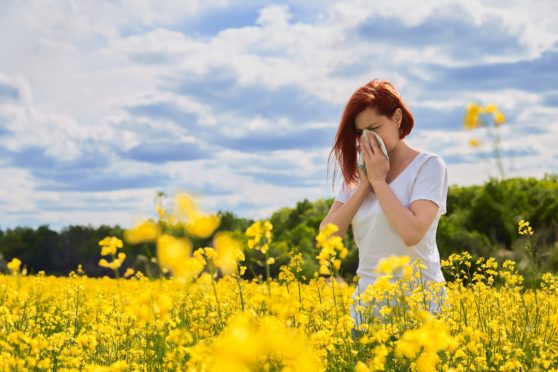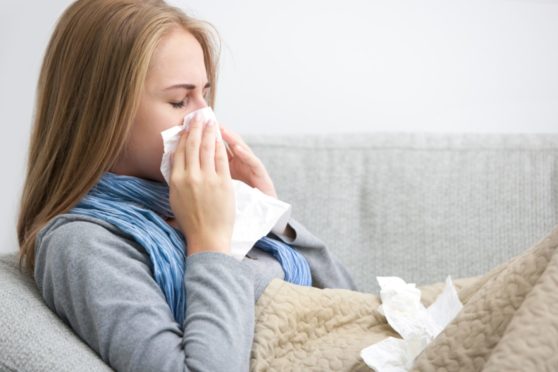Peak grass pollen season across the country means that hay fever sufferers are seeking out advice on remedies like never before. But just what is hay fever and what is the best hay fever treatment?
Shocking figures gathered by Allergy UK reveal half the population now report suffering from hay fever symptoms, almost double previous estimates.
More than a third have developed symptoms for the first time in the last five years and over half are anxious others may mistake their symptoms for signs of Covid-19.
Local pharmacist Jenna Doig, currently at Cadham Pharmacy in Glenrothes, said they have noticed an increase in people looking for help: “Across the board, everywhere, we’ve seen a massive uptake in people looking for treatment for hay fever this year.”
What causes hay fever?
There are a number of different factors which have exacerbated the issue, she explains, including pollen variation, which flowers are seasoned and what’s blossoming.
“We’ve had quite strange weather this year so that’s meant the rapeseed flowered a couple of weeks later than normal. People living in rural areas surrounded by rapeseed are being more affected now.
“Standard seasonal flowers and grass are also pollenating which means there’s more pollen in the air.”
Hay fever is usually worse between March and September, especially when it is warm, humid or windy.
Allergy UK states that grass pollen is the most common allergen, but tree and weed pollens can also cause hay fever.
What are the most common hay fever symptoms?
- sneezing and coughing
- a runny or blocked nose
- itchy, red or watery eyes
- itchy throat, mouth, nose and ears loss of smell
- pain around your temples and forehead
- headache
- earache
- feeling tired
If you have asthma, you might also:
- have a tight feeling in your chest
- be short of breath
- wheeze and cough
What are the best hay fever treatments?
There’s no cure for hay fever but you can do certain things to ease your symptoms:
- put Vaseline around your nostrils to trap pollen
- wear wraparound sunglasses to stop pollen getting into your eyes
- shower and change your clothes after you have been outside to wash pollen off
- keep windows and doors shut as much as possible
- vacuum regularly and dust with a damp cloth
- buy a pollen filter for the air vents in your car and a vacuum cleaner with a HEPA filter
Your pharmacist can suggest the best treatments – and there’s lots of advice at Allergy UK.
Jenna added: “Depending on their main symptoms, most people manage fairly well with a one-a-day, non drowsy antihistamine.
“But if the person is particularly bothered with sneezing or rhinitis – which is an itchy nose – and if if they’re over 18, we’d look at a steroid nasal spray. For runny eyes we could recommend antihistamine eye drops.”
Pharmacies, including Cadham, also offer advanced clinics and Pharmacy First provision for those with more severe symptoms which might not be treatable with standard antihistamine.
And for 20% of people who have such severe hay fever it affects their quality of life and who find other remedies haven’t worked, immunotherapy can be investigated.
Allergy UK has developed a questionnaire to determine if your hay fever could be classed as a severe allergy.
Drivers were also recently reminded to exercise caution when getting behind the wheel because some hayfever treatments may have side effects which could hamper their ability to operate a vehicle properly.
You can track the pollen count in your area on the Met Office website.













